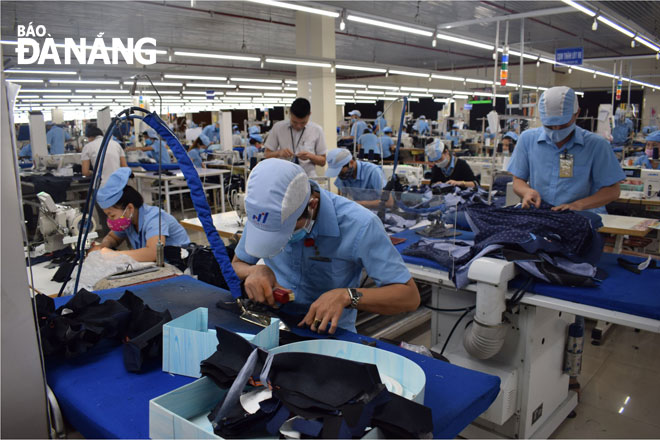Opportunities and challenges brought by EVFTA
On 30 June, the EU-Viet Nam free trade agreement (EVFTA) will be officially signed and take effect, which will bring great benefits to the Vietnamese economy, especially the export sector.
 |
| More opportunities opening up for Vietnamese businesses as EVFTA enters into force |
Once the EVFTA takes effect, over 99% of tariff on goods from both sides will be lifted. Viet Nam will remove 65% of import tariff on goods from the EU, whilst the remaining tariffs will be removed in the next decade.
Apart from offering significant economic opportunities, the trade agreement ensures that trade, investment and sustainable development go hand in hand, by setting the highest standards of labour, safety, environmental and consumer protection.
According to the Vietnamese Ministry of Planning and Investment, EVFTA will help to increase the country’s export turnover to the EU by 20% by 2020, 42.7% by 2025 and 44.37% by 2030.
To date, amongst ASEAN member countries, only Viet Nam and Singapore have concluded their negotiations with the EU. Therefore, Vietnamese businesses will have more advantages than other nations in competing and accessing this market.
Besides, the agreement will open the opportunities for investors from the 28 EU member countries to invest into Viet Nam.
Specially, the implementation of commitments in EVFTA will ensure a stable and transparent business and legal environment for investors of the both sides.
As for Da Nang, the export turnover to the EU accounts for 15% of the city’s total, with a focus on such key items as textiles and garments, seafood, electrical equipment, electronic components, children toys, handicrafts, and wooden products.
Therefore, EVFTA will benefit local businesses, contributing to increasing export turnover and enhancing the market access ability. In addition, local consumers will have the opportunity to access high-quality products and services from the EU member nations in such aspects as pharmaceuticals and healthcare.
In addition to giving good opportunities, the EVFTA expects bring Viet Nam big challenges. The EU is a market where competition is fierce, with strict requirements for products and services, especially in terms of food safety. Meanwhile, Viet Nam is a developing country with most of domestic businesses being small in size and yet to pay enough attention to service quality and food safety.
Moreover, Vietnamese support industries remain underdeveloped, while EU countries apply strict rules of origin to identify eligible products to be offered preferential access to the EU market. It means that the Vietnamese government and businesses need to pay special attention to developing support industries in order to take advantage of preferences from the EVFTA.